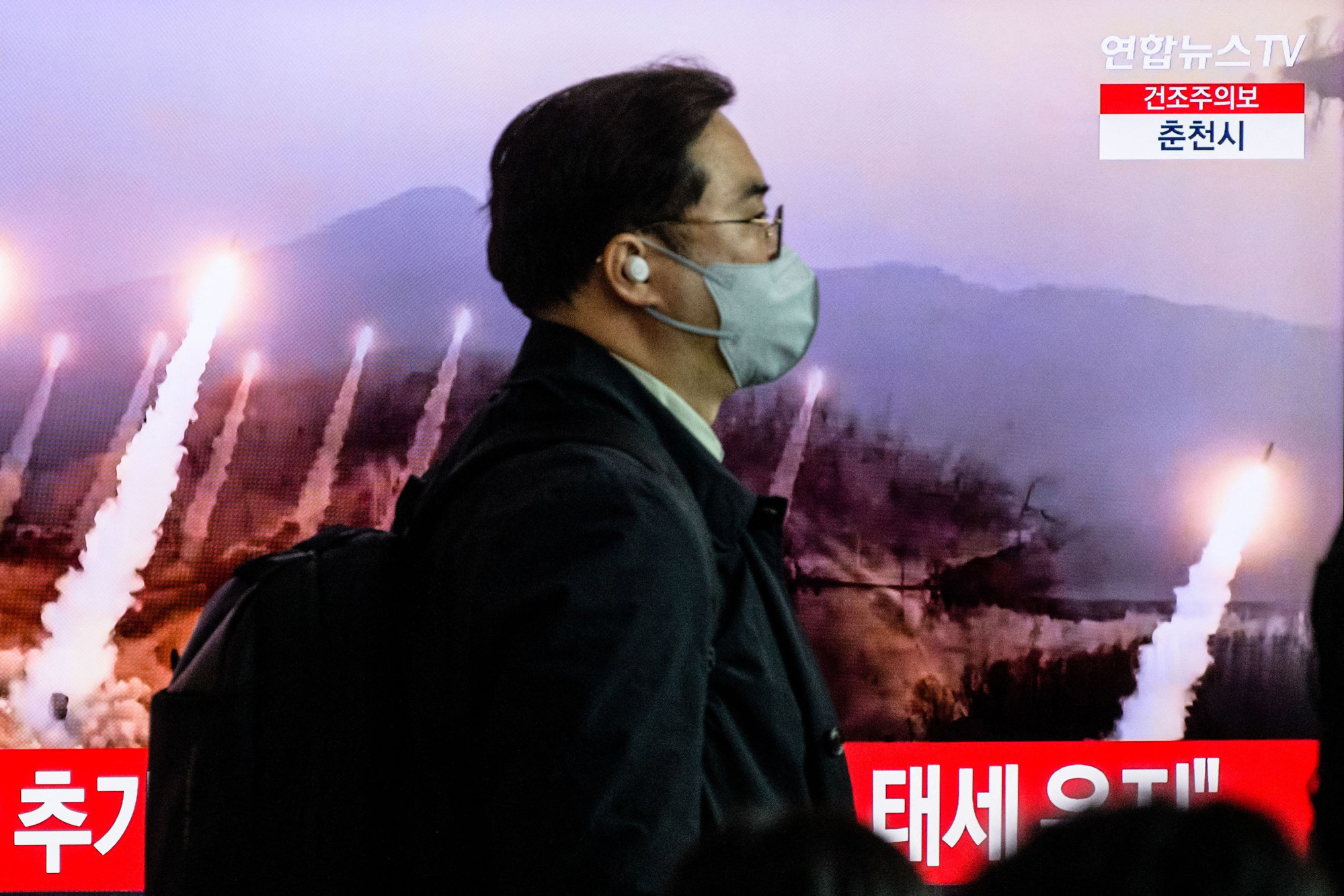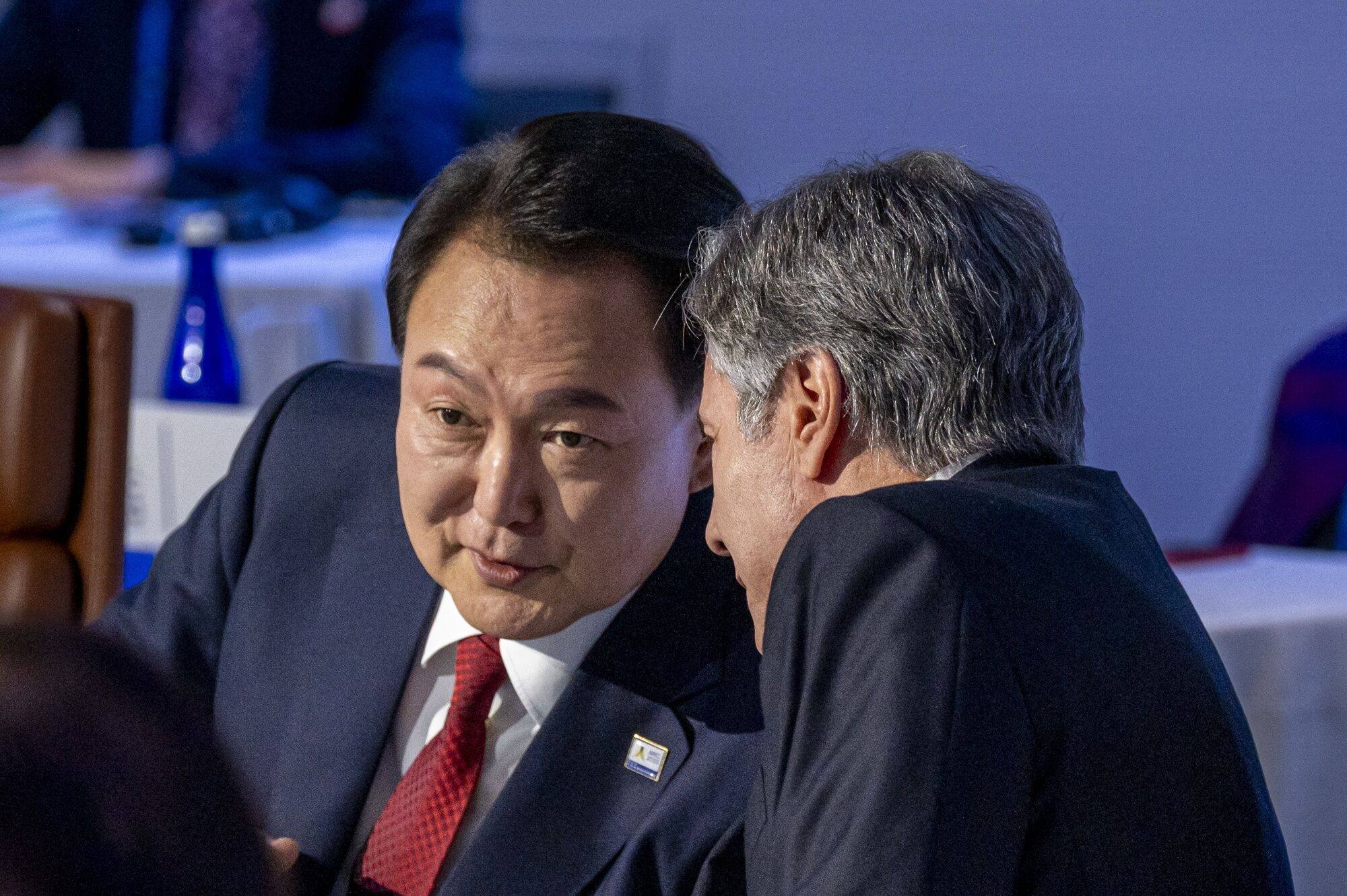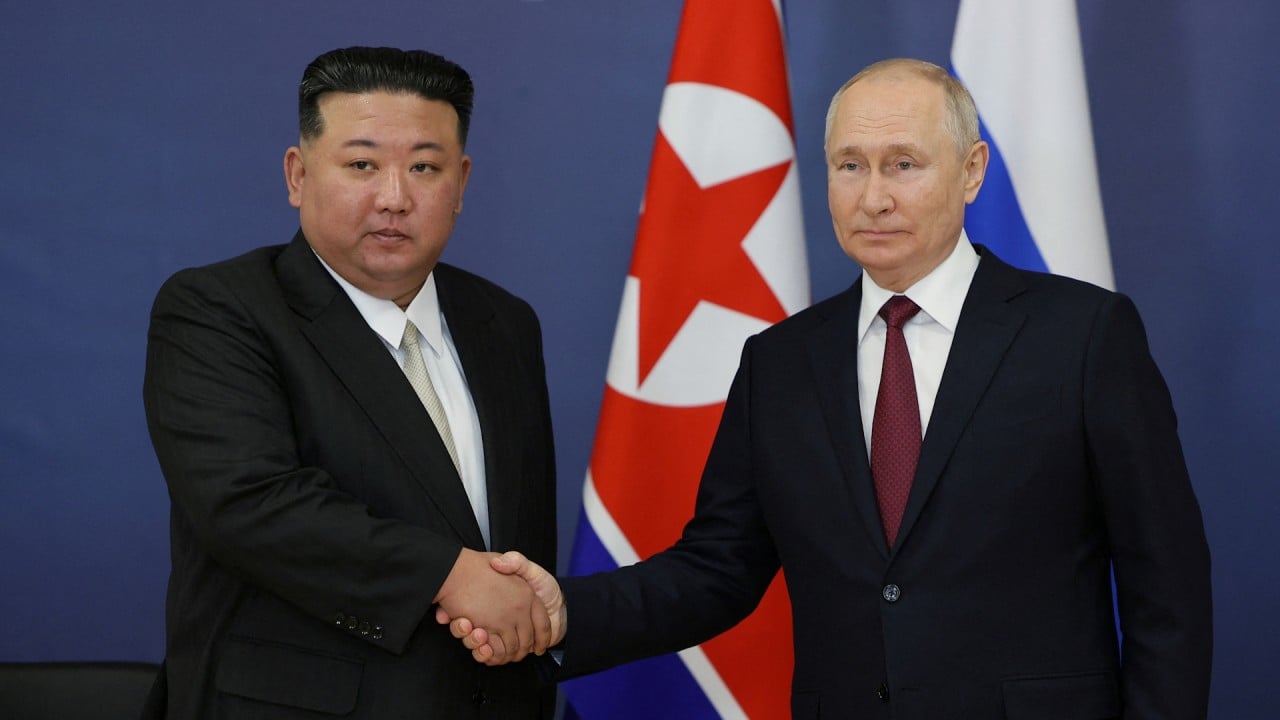South Korea won’t risk ties with China amid Beijing’s ambivalence over Moscow-Pyongyang alliance: analysts
China is taking a non-interventionist approach towards the deepening ties between the North and Russia, but such moves go against Beijing’s principles in dealing with international affairs, he said.
North Korea claimed Wednesday to have successfully placed a spy satellite into orbit following two botched attempts this year amid protracted tensions with the United States and the South.
The launch sparked strong condemnation from the US and its partners even though it remains unclear whether the satellite is advanced enough to perform military reconnaissance.
Leif-Eric Easley, professor of international studies at Ewha Womans University in Seoul, said the North’s claims of a successful launch did not mean the satellite would actually perform meaningful functions.
Surveillance drone operations Seoul might soon commence along the inter-Korean border should yield more useful intelligence than North Korea’s rudimentary satellite programme, he said.
“However, Pyongyang will likely use South Korean drone flights as an excuse for further military provocations,” Easley added.
North Korea earlier notified Japan it planned to launch a space satellite between November 22 and December 1 in the direction of the Yellow Sea and East China Sea, sparking immediate condemnations from the South and Tokyo as a breach of UN Security Council resolutions banning tests by the North using ballistic missile technology.

Seoul then said if its rival proceeded with the launch, it could suspend part of a 2018 inter-Korean military agreement under which buffer zones and no-fly zones near the inter-Korean border were set up and artillery firing, naval drills and surveillance activities were banned.
The South Korean navy on Tuesday added that the USS Carl Vinson aircraft carrier had arrived at the southeastern city of Busan in a show of force, hours after the North notified Japan of the planned launch.
Moon Seong-mook, director of the Institute for National Security Strategy, said it would be difficult for Beijing to change its stance and play a “constructive role” in sanctioning Pyongyang.
South Korea’s spy agency said the North had supplied Russia with more than 1 million artillery shells since early August in return for help in with technology for launching a spy satellite after two botched attempts earlier this year.
During the meeting, Putin reportedly said Russia would help North Korea build satellites.
China appeared to be ambivalent about the Russia-North Korea deal as it wanted Putin to survive the Ukraine war, and Beijing was also concerned about mounting tensions on the Korean peninsula, analysts said.
What Russia’s purchase of North Korean arms could mean for world security
What Russia’s purchase of North Korean arms could mean for world security
Yoon in the interview argued it would not be helpful for China’s international reputation and status should it pursue a three-way cooperation with the North and Russia, which he said blatantly violated the UN Security Council resolutions and international norms.
“China plays an important role in improving the freedom, peace and prosperity of the Northeast Asian region and the international community”, he said. “The [South] Korean government has been consistently pursuing healthy and mature Seoul-Beijing relations based on mutual respect and reciprocity.”
He said the North’s weapons support to Russia would extend the war in Ukraine, creating more casualties, warning that if Russia provided military tech support to North Korea, it would threaten South Korea’s national security and regional peace.
How growing Russia-North Korea ties could challenge stability in northeast Asia
How growing Russia-North Korea ties could challenge stability in northeast Asia
“We can be isolated diplomatically … I urge the government to quickly amend the existing diplomatic path that is biased towards tension and confrontation and shift to a flexible and pragmatic diplomatic policy focusing on national interests,” the liberal opposition Democratic Party head Lee Jae-myung said on Monday, referring to the absence of a Xi-Yoon summit.

Professor Park of Ewha Womans University said: “Seoul’s stance is that the principles of mutual respect and reciprocal benefits were not properly observed [by China under the past liberal government in South Korea].”
Conservatives accuse the past government of being too deferential towards Beijing.
China on Monday said in a press conference that it knew what its “responsibilities and interests are” in the South China Sea.
“We don’t need to be told what to do or not to do,” said China’s foreign affairs ministry spokeswoman Mao Ning. “[South Korea] is not a party to the South China Sea issue and there’s no point in getting involved.”
Britain and South Korea will sign a defence agreement during Yoon’s state visit this week, to jointly enforce United Nations Security Council sanctions on North Korea, the British government said on Tuesday.
The agreement will support closer relations between Britain’s Royal Navy and the South Korean navy to counter smuggling in the East China Sea which is aimed at bypassing international sanctions, Britain said.
Additional reporting by Reuters


